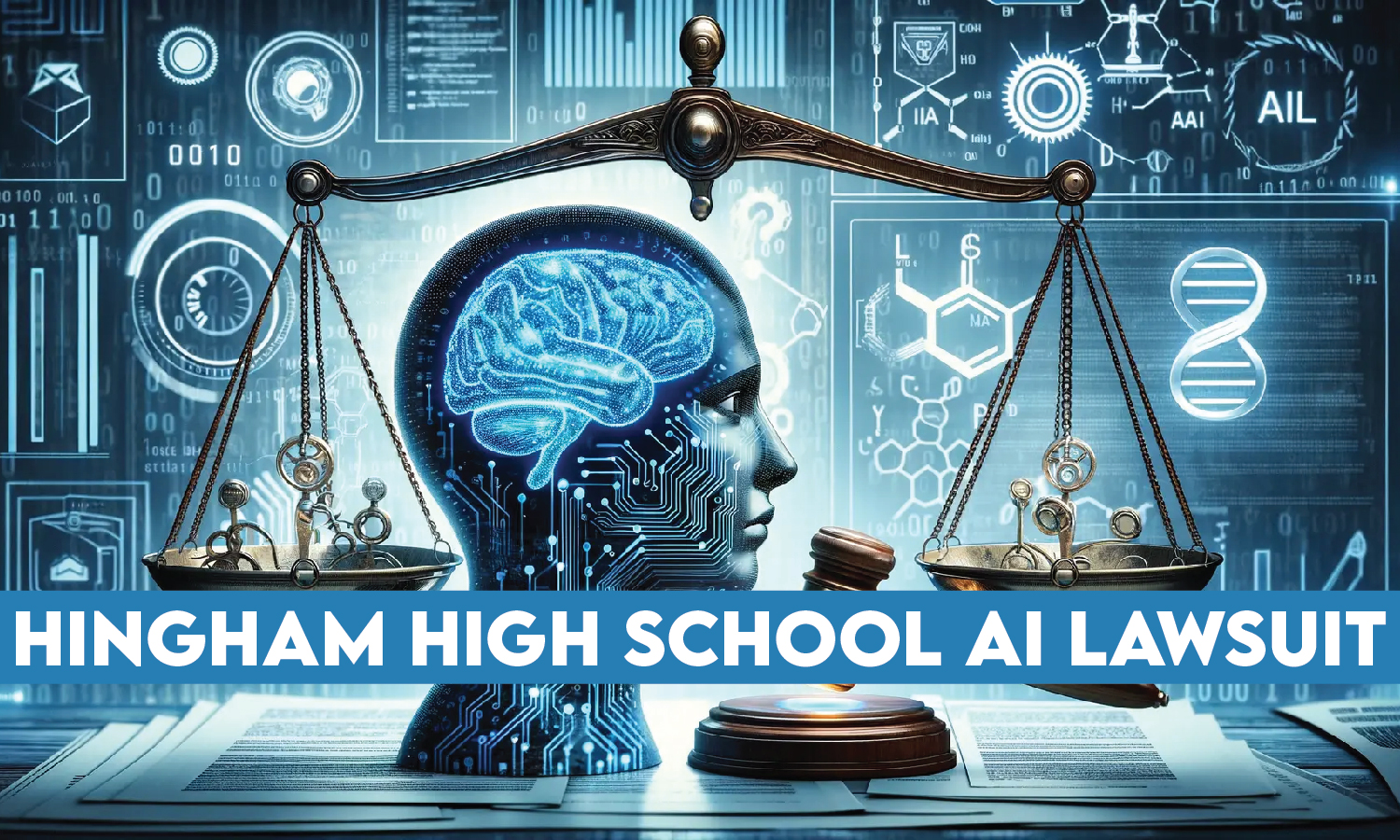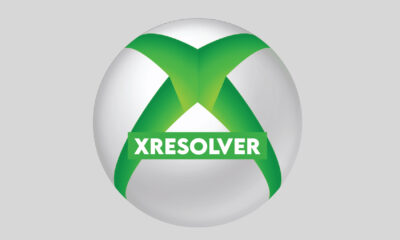Blog
Hingham High School AI Lawsuit: How One Student’s Punishment Sparked a Debate on AI in Education

Introduction
In an era where artificial intelligence (AI) is transforming industries, its impact on education has become a hotly debated topic. A recent lawsuit involving Hingham High School in Massachusetts has ignited discussions about the ethical use of AI in academics, academic integrity, and the need for clear policies governing emerging technologies.
This case, centered around a student penalized for using AI in a history project, raises critical questions: Should AI be considered unauthorized assistance? How should schools handle the use of AI tools? And what does this mean for the future of education?
The Incident: What Happened at Hingham High School?
In October 2024, a senior student at Hingham High School, referred to in legal documents as RNH, collaborated with a classmate on a National History Day project about basketball legend Kareem Abdul-Jabbar’s civil rights activism. To aid in research and drafting, they used AI tools—a common practice in many academic and professional settings.

However, their history teacher discovered the use of AI, deemed it unauthorized, and accused them of academic dishonesty. As a result, RNH faced severe disciplinary actions:
- A failing grade on the project
- Detention
- Expulsion from the National Honor Society
These penalties prompted outrage from the student’s parents, Jennifer and Dale Harris, who filed a lawsuit against the school, arguing that the punishment was unfair and that the school’s policies did not explicitly prohibit AI usage at the time.
The Parents’ Argument: Why They Sued the School
The Harrises contended that:
- The school handbook did not prohibit AI use. At the time of the project, no clear rule stated that AI assistance was forbidden.
- AI-generated content is not plagiarism. They argued that since AI does not copy content from a human author, it should not be considered plagiarism in the traditional sense.
- The disciplinary actions harmed their son’s future. The lawsuit claimed that the penalties negatively impacted RNH’s academic record and reduced his chances of being accepted into top-tier universities.
The School’s Response: Upholding Academic Integrity
Hingham High School defended its actions, stating that:
- AI assistance violated the school’s academic integrity policy. While AI was not explicitly mentioned, the school maintained that using external sources without proper citation constituted academic dishonesty.
- AI-generated content must be cited. The school equated AI assistance to using another person’s work without acknowledgment.
- Students must demonstrate original thought. The school emphasized that projects should reflect students’ own research, analysis, and critical thinking, rather than relying on automated tools.
In response to the controversy, the school has since updated its handbook, explicitly outlining AI use policies and requiring students to properly cite AI-generated content.
Legal Proceedings and Outcome
The case went to federal court, drawing national attention. In November 2024, U.S. Magistrate Judge Paul Levenson ruled in favor of the school, stating that:
- The school had the authority to enforce academic integrity policies.
- The disciplinary actions were within the school’s rights and did not violate the student’s constitutional rights.
- Educational institutions must adapt to new technology but still uphold academic honesty.
The ruling set a precedent for how AI-related academic disputes might be handled in the future.
Implications for AI in Education
The Hingham High School lawsuit has sparked broader discussions on the role of AI in education. The case highlights several key issues:
1. The Need for Clear AI Policies in Schools
With AI becoming increasingly accessible, schools must develop comprehensive guidelines that address:

- When and how AI tools can be used
- Proper citation practices for AI-generated content
- Ethical considerations in AI-assisted learning
2. Redefining Academic Integrity in the AI Era
Traditionally, academic dishonesty involved copying another person’s work. AI-generated content challenges this definition. Schools must reconsider what constitutes plagiarism and originality in a world where AI can assist in research and writing.
3. Balancing Technology and Learning
While AI can enhance learning by improving efficiency and access to information, over-reliance on AI tools may hinder students’ ability to develop critical thinking and problem-solving skills. Educators must find a balance between leveraging AI’s capabilities and ensuring students actively engage with their learning material.
4. Ethical Considerations of AI in Education
AI raises ethical questions about authorship, fairness, and accessibility. Should AI use be allowed only for students who can afford premium AI tools? How can schools ensure that AI tools are used to enhance learning rather than replace effort?
What Comes Next? Future of AI in Education
In response to this lawsuit and growing concerns about AI’s role in education, several steps are being taken:
- Schools are revising academic integrity policies to specifically address AI usage.
- Teachers are being trained on how to detect and assess AI-generated content.
- Students are being educated on ethical AI use and proper citation practices.
- Technology companies are developing tools to help verify AI-generated versus human-created content.
As AI continues to evolve, its integration into education will require ongoing discussions, policies, and adaptations to ensure both innovation and academic integrity are upheld.
Frequently Asked Questions (FAQs)
1. What was the Hingham High School AI lawsuit about?
The lawsuit involved a student who was punished for using AI in a history project. His parents sued the school, arguing that AI use was not explicitly prohibited at the time, leading to a broader debate about AI in education.
2. Why did the school discipline the student?
The school determined that using AI tools constituted unauthorized assistance and academic dishonesty, leading to a failing grade, detention, and expulsion from the National Honor Society.
3. Did the court rule in favor of the student?
No, the federal judge ruled in favor of the school, stating that the disciplinary actions were justified and aligned with academic integrity policies.
4. How has this case impacted school policies on AI?
Following the lawsuit, schools have begun updating their policies to clearly define acceptable AI use, requiring citation of AI-generated content, and emphasizing originality in student work.
5. Is AI use considered plagiarism?
This is still a debated topic. Some institutions consider AI-generated content plagiarism if it is used without citation, while others believe AI assistance should be treated differently from copying human-authored content.
6. How can students use AI ethically in their work?
Students should:
- Follow school guidelines on AI use.
- Cite AI-generated content where necessary.
- Use AI as a learning aid rather than a shortcut.
- Ensure their work reflects their own analysis and critical thinking.
7. What should schools do to address AI-related academic issues?
Schools should:
- Develop clear AI policies.
- Educate students on ethical AI use.
- Provide training for teachers on AI detection and assessment.
- Encourage discussions on AI’s role in learning and research.
Conclusion
The Hingham High School AI lawsuit has ignited crucial conversations about the intersection of technology and education. While AI presents incredible opportunities for learning, it also raises ethical and academic integrity concerns. Schools, educators, and students must work together to establish clear guidelines that embrace innovation while maintaining fairness and originality in academic work.
Also see Newsnova For more Amazing Information.
-

 Blog3 weeks ago
Blog3 weeks agoite:mommyandlove.com/baby-names/: sugget baby name in free
-

 Crypto3 weeks ago
Crypto3 weeks agoDiscover the Power of “icryptox.com future” for Real-Time Crypto Analysis
-

 Social Media2 weeks ago
Social Media2 weeks agoUnlock the Power of Connection with Facebook Comace: A Comprehensive Guide
-

 Life Style4 weeks ago
Life Style4 weeks agomake1m.com Millionaire Life: How to Become
-

 Blog2 weeks ago
Blog2 weeks agoZtoog.com: Your Ultimate Gateway to Tech Innovations and Future Trends
-

 Technology4 weeks ago
Technology4 weeks agofashion 6 cell 10.8v 4001mah-5000mah replacement laptop battery for asus
-

 Crypto4 weeks ago
Crypto4 weeks agoeCryptoBit.com Tokens: Today’s Best NFT Coin
-

 Business2 weeks ago
Business2 weeks agoWhat is xResolver? A Simple Guide to Protect Your Privacy While Gaming




